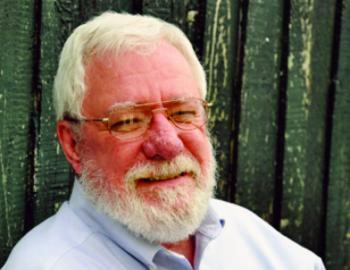
Jim Bradshaw
Buying good land dirt cheap
It can be argued that the Civil War was the most momentous event ever in south Louisiana, even in a place that had seen the terror and turmoil of black people shipped into slavery, of families torn apart during the Acadian exile, and of a place filled with people who came here fleeing other wars, oppression or grinding poverty.
Fully half of the wealth of the state — homes, stores, railroads, plantations, livestock, crops, mills, furniture, silverware, money, and more — was stolen, torn down, burned, ransacked or ruined.
A good measure of the destitution left in the wake of the war can be found in a single column on the front page of the Planter’s Banner, published in Franklin on June 16, 1869, a typical edition for those Reconstruction days.
It is the “For Sale” column and there are untold stories to be found there.
The first item announces the sale of the Chicot Pass Plantation in the Atchafalaya Basin and adjoining acreage on Hog Island. The advertisement notes that the property is being sold by the estate of E.W. Fuller, deceased.
What it doesn’t say is that Captain Emelius Woods Fuller died in a prisoner of war camp after twice being severely wounded in two major gunboat battles in south Louisiana and was described by General Richard Taylor as “the bravest man that ever lived.”
Fuller’s name is all but forgotten today, but a student of the war in Louisiana claims “no Confederate officer in the Teche Region was more admired by the civilian population. . . . He was considered a hero.” He left a wife and children who apparently could not keep up the plantation.
Farther down the newspaper column, we find an ad for the sale of a 3,000-acre plantation near Franklin, 1,000 acres of which are “heavily wooded in good cypress.” Also, a large plantation on Bayou Boeuf near Brashear (Morgan) City, 1,000 acres on Bayou Courtableau in St. Landry Parish, a big farm near Lafayette “well stocked with cattle, horses, hogs, chickens, etc.”
Scanning on down the column: A tract of land a mile above Franklin on Bayou Teche, half of a farm on the bayou near Jeanerette, “a small sugar park” on Bayou Boeuf four miles from Brashear City, 150 “remarkably fertile acres” near Jeanerette, a stock farm near Abbeville.
Also up for sale: A “fine dwelling” in St. Martinville “commanding the banks of Bayou Teche” with “kitchen, store-room, large brick cistern, carriage house, ornamental trees” and a large garden; another dwelling on six acres near Franklin; and a two-story home nearby with “good fences, fruit trees, flowers, shrubbery, etc.”
The Brashear City Hotel was being offered for $4,500 cash or, giving a nod to the lean times, “part cash and part on terms.” The newspaper also recognized that the war left families hard pressed for cash. Its policy on these real estate ads: “We will charge nothing until a sale is made.”
Most of these properties would be sold reasonably quickly. The Banner noted in the same edition that “strangers are now flocking to Attakapas.” Unfortunately, many of those strangers were drawn here by the prospect of buying good land at bargain prices from families forced to sell.
You can contact Jim Bradshaw at jimbradshaw@gmail.com or P.O. Box 1121, Washington LA 70589
- Log in to post comments
